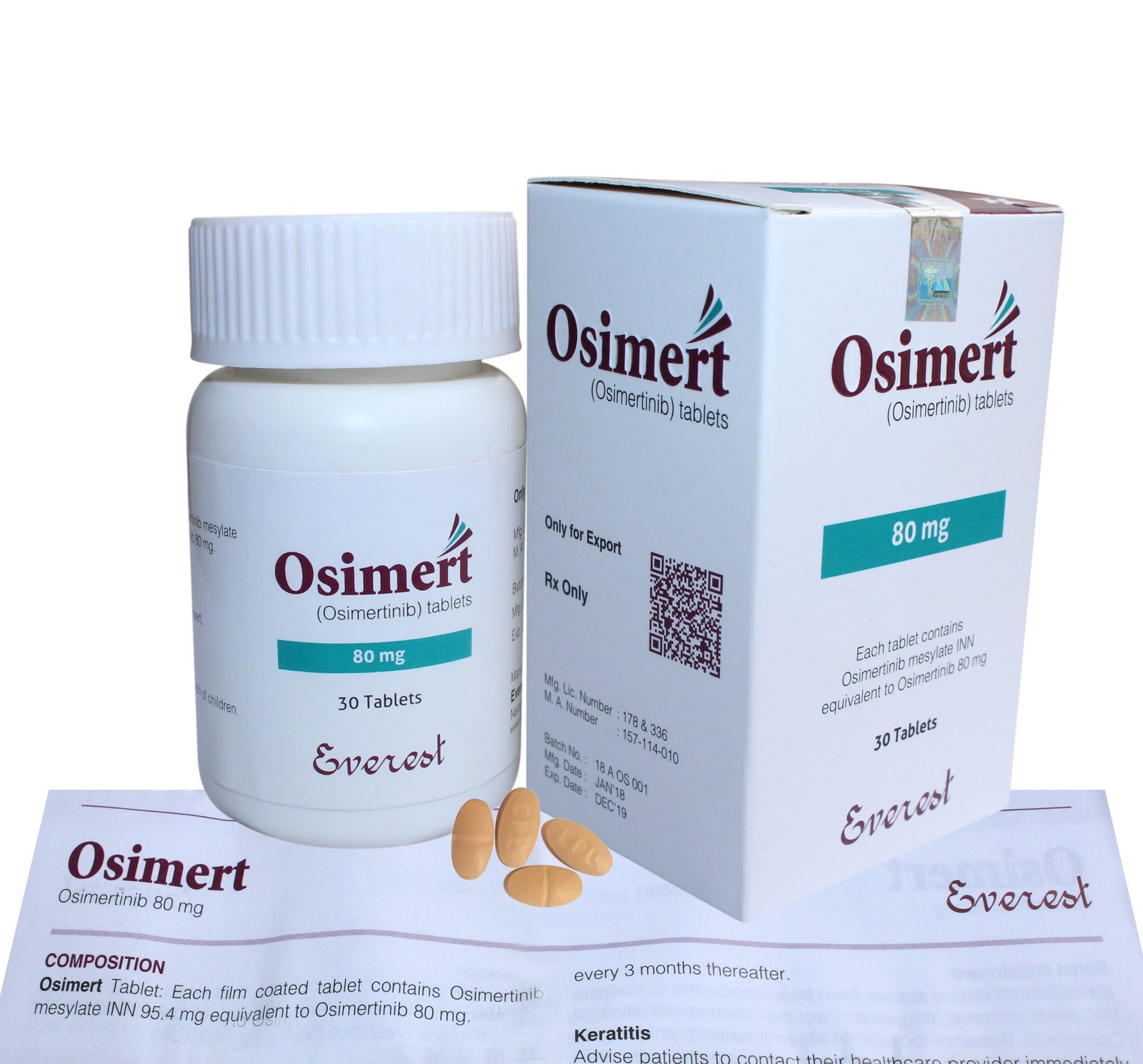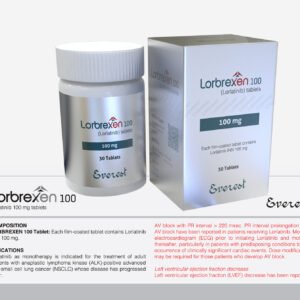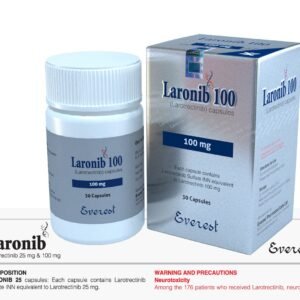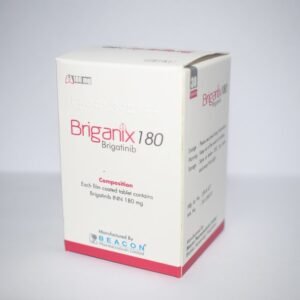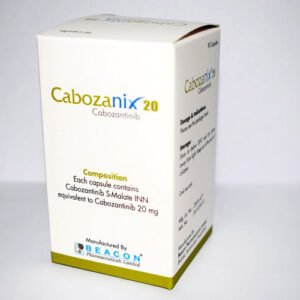Description
Buy Tagrisso (Osimertinib) 80 mg online
Indication: Osimert, also known as Osimertinib as per the International Nonproprietary Name (INN), is prescribed for adults with locally advanced or metastatic non-small cell lung cancer (NSCLC) featuring the epidermal growth factor receptor (EGFR) T790M mutation.
Pharmacology: Tagrisso (Osimertinib) 80 mg is a third-generation tyrosine kinase inhibitor (TKI) that selectively targets EGFR-sensitizing mutations and the T790M resistance mutation while sparing wild-type EGFR. This inhibition of EGFR signaling suppresses tumor cell proliferation, angiogenesis, and metastasis in NSCLC with EGFR mutations.
Dosage and Administration: Adults are typically advised to take Osimert orally at a recommended dose of 80 mg once daily, with or without food, until disease progression or intolerable side effects occur. Dosage adjustments may be necessary based on individual patient tolerance.
Interactions: Osimert may interact with drugs affecting cytochrome P450 enzymes, particularly CYP3A4. Avoid co-administration with potent CYP3A4 inhibitors or inducers. Additionally, caution is warranted when combining with drugs prolonging the QT interval or substrates of P-glycoprotein.
Side Effects: Common side effects may include diarrhea, rash, dry skin, nail toxicity, stomatitis, and decreased appetite. Serious adverse reactions could involve interstitial lung disease/pneumonitis, QT prolongation, cardiomyopathy, and ocular disorders like keratitis and cataracts.
Precautions and Warnings:
- Regular monitoring for signs of interstitial lung disease/pneumonitis is essential; treatment should be halted if suspected.
- Due to the risk of QT prolongation and cardiomyopathy, regular cardiac monitoring is recommended.
- Effective contraception is advised during treatment and for at least 6 weeks after the last dose due to embryo-fetal toxicity.
- Hepatotoxicity has been observed with Osimert, necessitating routine liver function tests during treatment.
Overdose Effect: In the event of overdose, provide supportive care and closely monitor for adverse reactions. No specific antidote is available; thus, appropriate symptomatic treatment should be initiated as necessary.

